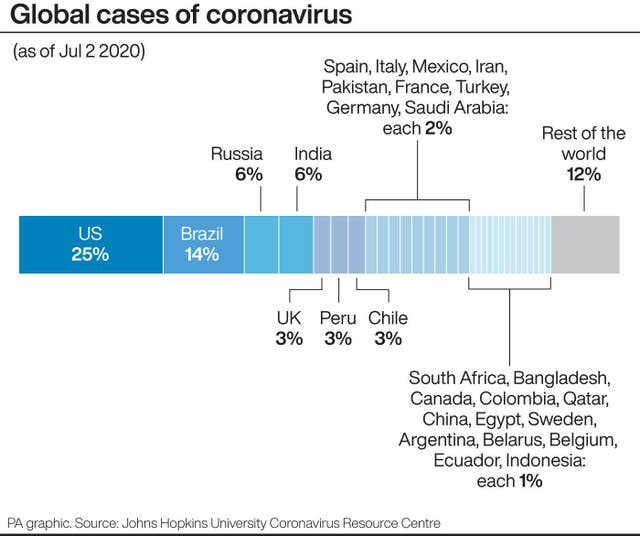What do the latest travel rules mean?
Quarantine restrictions are being amended, allowing people to travel without needing to self-isolate on their return.

Passengers arriving into England from “lower risk countries” will no longer be subject to quarantine, the Government has said.
Officials also added exemptions to the Government’s policy of advising against all non-essential overseas travel, allowing people to take holidays overseas without their insurance policies being affected.
Here, the PA news agency answers the key questions about the changes:
– What was announced on Friday?
Transport secretary Grant Shapps announced the lifting of the quarantine policy from July 10 for passengers arriving in England from countries such as Spain, France, Italy and Germany.
The 59 countries and territories on the list also include Greece, Australia and New Zealand, South Korea and Turkey, as well as smaller places such as Aruba, Bonaire, Sint Eustatius and Saba, San Marino and St Pierre and Miquelon.
Ireland, the Channel Islands and the Isle of Man were already exempt, and the 14 British Overseas Territories are also included.
Notable exclusions include the US, Russia, Brazil, China, Mexico and Portugal.
Meanwhile, the Foreign and Commonwealth Office set out exemptions for a number of destinations from its global advisory against “all but essential” international travel which will come into force on Saturday.
It included a number of countries not on the DfT list, such as Latvia, Slovakia and Slovenia, which risked causing confusion.
– How will these announcements affect travel?
The quarantine policy will mean people either returning to or visiting England from the listed countries will not need to self-isolate for 14 days after arrival.
The Government has said there is an “expectation” that exempted countries will also not require arrivals from the UK to self-isolate, but English people will be expected to comply with coronavirus requirements in their destinations.
Officials “continues to work closely with international partners around the world to discuss arrangements for travellers arriving from the UK,” the Government said.

– And what will the FCO advice change mean?
The FCO’s announcement will mean that people can travel to a number of destinations overseas with regular travel insurance policies.
– What about Scotland, Wales and Northern Ireland?
The Department for Transport said: “Information for travel into Scotland, Wales and Northern Ireland will be published in due course by the devolved administrations.”
– Could this advice change?
Exempted countries and territories will be constantly reviewed and the exempted list “may be added to over the coming days following further discussions between the UK and international partners”.
But if conditions worsen in any country or territory “we will not hesitate to reintroduce self-isolation requirements” the DfT said.
The current list follows a risk assessment from the Joint Biosecurity Centre and Public Health England which has looked at the prevalence of Covid-19 and numbers of new cases.
– What has the Government said?
Mr Shapps said: “Today marks the next step in carefully reopening our great nation.
“Whether you are a holidaymaker ready to travel abroad or a business eager to open your doors again, this is good news for British people and great news for British businesses.”
– What are the rules on quarantine?
Since June 8, all passengers, bar the handful of exemptions, have been required to go into self-isolation for 14 days when they arrive in the UK.
People who fail to comply can be fined £1,000 in England, and police are allowed to use “reasonable force” to make sure they follow the rules.





